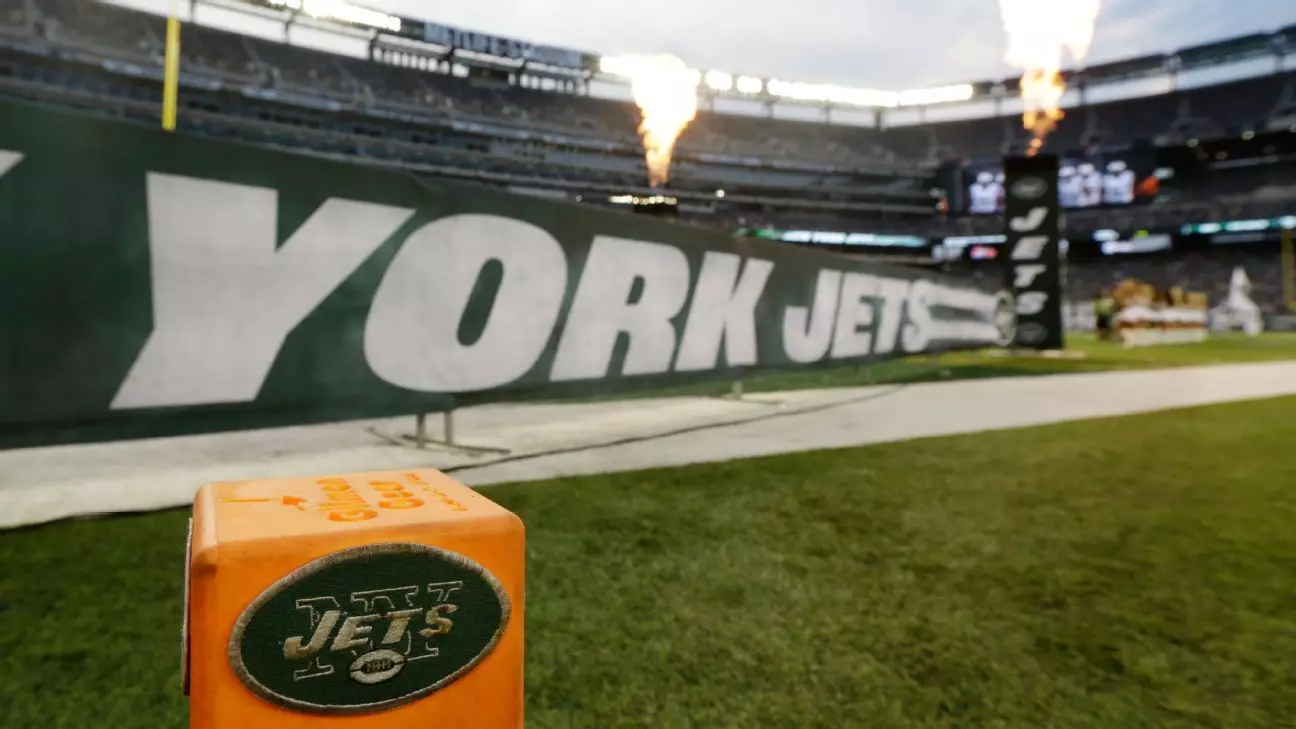The New York Jets are stepping into a vital transitional phase as they prepare for the 2025 season, particularly with the announcement that Tanner Engstrand will serve as their offensive coordinator. Filling this pivotal role, Engstrand brings a noteworthy blend of experience from his time with the Detroit Lions and under the mentorship of Jim Harbaugh. However, this appointment unfolds amid a backdrop of uncertainty that surrounds both the Jets’ quarterback situation and their overall offensive strategy.
Tanner Engstrand has been confirmed as the Jets’ new offensive coordinator, following the conclusion of the 2024 season where he served as the passing game coordinator for an offense that notably racked up a league-high 564 points. Having collaborated closely with Jets head coach Aaron Glenn over the previous four years, Engstrand’s appointment symbolizes a continuity of vision that contrasts with the Jets’ past hiring practices.
This is not Engstrand’s first rendezvous with a first-time head coach and playcaller—echoes of the Jets’ past can be felt as they again entrust the offense to a new voice. The Jets have historically grappled with instability in the coaching department, which arguably contributed to their dismal offensive performances over the last decade. This consistency in turnover raises fundamental questions about the franchise’s ability to foster long-term growth and identity on the field.
At the epicenter of Engstrand’s challenges lies the uncertainty surrounding the future of Aaron Rodgers. With the four-time MVP on the fence about returning for another season, the Jets find themselves at a crossroads. Engstrand inherits an offense that features promising talents like wide receivers Garrett Wilson and potentially Davante Adams, who may, however, find himself released due to salary cap constraints. Moreover, the situation at quarterback complicates matters significantly; with backup Tyrod Taylor and rookie Jordan Travis, the position lacks a firm superstar presence.
This uncertainty likely played a crucial role in the Jets’ pursuit of other coordinator candidates, such as Nick Cailey from the Los Angeles Rams, who reportedly declined an interview under the prevailing doubts about the coaching direction and quarterback lineup. Thus, Engstrand’s entry into the organization arrives cloaked in questions, making for a high-risk, high-reward scenario.
Engstrand’s coaching journey has spanned various leagues, including significant stints at collegiate levels and the XFL. However, it is essential to note that while he has experience as a position coach, Engstrand lacks the direct NFL playcalling experience that many would deem necessary for success in this league. Historical data on NFL offensive coordinators indicates that successful teams tend to favor candidates with extensive experience managing game situations, which raises eyebrows regarding this decision.
While he has had successes in his past roles—most notably within Dan Campbell’s Lions system—it remains to be seen how Engstrand adapts his style to accommodate the Jets’ specific needs. The Jets finished a lackluster 24th in scoring last season, reflecting an urgent need for creative offensive solutions. The pressure lies heavily not just on Engstrand but also on Glenn to cultivate a collaborative workflow that supports the team’s strengths.
Engstrand’s tenure with the Jets will entail navigating a multitude of challenges including roster adjustments, tactical implementations, and connection-building with players. With a core of returning starters on the offensive line, the Jets might showcase potential growth, but the foundation remains weak. The running back Breece Hall exhibits versatility, yet the offense cannot rely simply on individual talents.
It will be crucial for Engstrand to draw from his broad experience while developing a cohesive offensive system. This success will necessitate collaboration across both coaching and player levels. Emphasizing adaptability in strategy and an innovative mindset will be key to overcoming the historical patterns of dysfunction that have plagued this franchise.
As the Jets embark on this latest chapter with Tanner Engstrand at the helm of their offense, fans and analysts alike will be closely watching to evaluate whether this new direction invites finally the stability and success they have long sought. Only time will reveal if this gamble pays off for a team that has endured its fair share of ups and downs in its quest for consistency.

